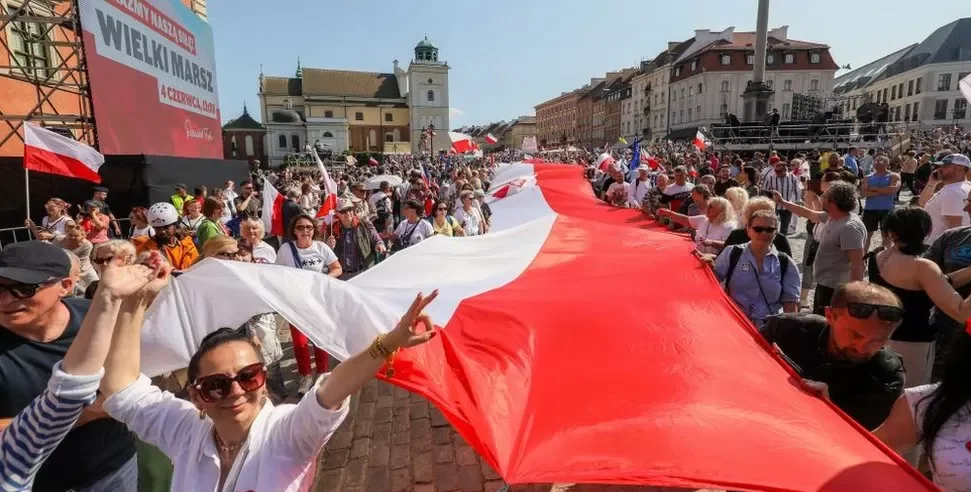A huge protest was carried out in Warsaw, the capital city of Poland. According to multiple sources including the BBC, half a million people participated in a protest in Warsaw against the government this week. The protests were also held in other cities in Poland including Krakow. Main opposition parties have called for protests against a range of problems including the anti-influence law, frustrations over inflation and costs of living. Many have criticized that the new law, which will set up a commission to investigate alleged Russian influence and give it the power to ban people from assuming public office for 10 years, can be potentially used for undermining democracy. Some protesters also voiced anger at double-digit inflation.
It is pertinently notable that the Law and Justice government of Poland has been heavily criticized for several years for its undemocratic moves including limiting the judiciary’s independence and freedom of media and endorsing homophobia. According to multiple sources, the rule of law eroded and independent media outlets decreased in the last few years as media faced threats and obstacles in their reporting leading to repeated protests against the government in the last few years in Poland. Against the Russian Influence Law, many critics and protesters in Warsaw — where hundreds of thousands of people attended to mark the 34th anniversary of Poland’s first postwar democratic election in 1989 — criticized it to be designed to violate the Polish constitution and erode fundamental rights in Poland.
By this time, President Andrzej Duda has signed the law and proposed its amendments. Given that the law is vague, it may be misused against opponents under the guise of rooting out Russian interference in Poland from 2007 to 2022. According to multiple sources, it will take effect with no guarantees that the commission’s powers will be weakened for preventing its misuse against the opposition. Though the right-wing nationalist government denied that it eroded democracy and that the law will be used to prevent the opposition from running for public office, there is no apparent appeals process for those who are found guilty under the legislation. Consequently, critics’ concerns about the law for its possible use/misuse in attacking the opposition are not unfounded.
Given that it is important to cancel out any potential influence of any other country in the elections, it is neither unsurprising nor unreasonable to make the law to investigate Russian influence in Polish elections. But the law’s possible use or misuse to prevent opposition leaders from running for public office in the upcoming election — supposed to be held in autumn this year — remains a concern. It is desired that the concerns of protesters regarding the law are heeded and not misused to repress the opposition and prevent them from running for public office in the upcoming election in Poland. Also, it is imperative for the Polish government to heed other concerns of the protesters.
Amir M Sayem
Chief Editor
Dhaka Opinion Magazine

